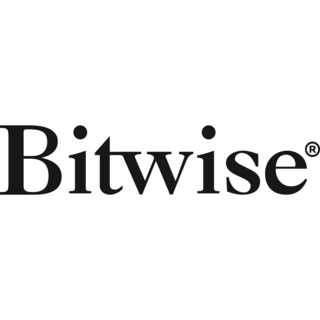6 Best Bitcoin ETFs
Rankings as of Feb 14, 2023.
Money is not a client of any investment adviser featured on this page. The information provided on this page is for educational purposes only and is not intended as investment advice. Money does not offer advisory services.
Exchange-traded funds (ETFs) are a type of investment fund designed to track the performance of a specific market sector or index. ETFs can hold a collection of assets — including stocks, bonds and commodities — and provide portfolio diversification. ETFs are popular in part because they can be bought and sold like stocks and for their potential solid returns over time.
You can find ETFs catering to a wide variety of investment strategies and financial goals. For example, there are tech ETFs that invest in the fast-growing technology sector, bond ETFs that provide investors exposure to fixed income, high-dividend ETFs and more. Bitcoin ETFs are yet another option. These funds invest in companies and assets related to Bitcoin or in Bitcoin futures to achieve similar investment returns to Bitcoin itself.
The number of Bitcoin ETFs has increased significantly as cryptocurrency continues to gain adoption. However, crypto is still a new technology, and investors can lose money, a fact that’s been apparent in recent months. To help you lower your risk and achieve your investment goals, we’ve compiled a list of the best ETFs for crypto enthusiasts in 2023.
Our Top Picks for the Best Bitcoin ETFs
- ProShares Bitcoin Strategy ETF (BITO) – Best U.S.-based Bitcoin ETF
- ProShares Short Bitcoin ETF (BITI) – Best for Daily Profit Opportunities
- Bitwise Crypto Industry Innovators ETF (BITQ) – Cheapest ETF option
- Valkyrie Bitcoin Strategy ETF (BTF) – Best Actively Managed Bitcoin ETF
- Simplify U.S. Equity PLUS GBTC ETF (SPBC) – Best Bitcoin ETF for U.S.-based companies
- VanEck Digital Transformation ETF (DAPP) – Best Expense Ratio
Best Bitcoin ETFs Reviews
- Highly liquid due to being one of the most actively traded crypto ETFs
- Made its first dividend distribution in January 2023, suggesting more will come in the future
- Actively managed fund with relatively high expense ratio (0.95%)
- Dividends are not guaranteed moving ahead
- Price
- $13.18
- Expense ratio
- 0.95%
- Minimum investment amount
- $10,000
- Assets under management
- $654 million
ProShares Bitcoin Strategy ETF was the first Bitcoin-linked ETF approved by the Securities and Exchange Commission (SEC) for trading in the United States. As a result, it attracted considerable investment during its first few days in 2021 and accumulated more than $1 billion in assets in its first two years of operation.
BITO seeks to mimic the price of Bitcoin as closely as possible by investing in Bitcoin futures, which allow for speculation on the price of Bitcoin without investing in the cryptocurrency itself. Like all crypto ETFs, part of the allure of BITO is that investors don’t need to deal with cryptocurrency wallets and private keys but can instead invest through a broker they already use.
Read our article on the difference between Bitcoin and Bitcoin Futures ETFs for more information.
- Ideal for investors who believe Bitcoin's price will fall
- Allows for daily profits by short selling Bitcoin
- Issued by the first and largest provider of Bitcoin-linked ETFs in the U.S.
- Investors can lose the entire value of their portfolio in a day
- Higher brokerage commissions and expense ratios reduce returns
- Price
- $39.79
- Expense ratio
- 0.97%
- Minimum investment amount
- Not Available
- Assets under management
- $99.48 million
The ProShares Short Bitcoin ETF (BITI) is a way to invest in Bitcoin when you believe prices will drop, as it allows investors to short sell Bitcoin. Short selling means betting against an asset, in which case you profit when the price of Bitcoin goes down instead of up. However, this also means that there’s no limit to losses an investor can incur, since the price of Bitcoin can hypothetically go up to infinity while it can’t go any lower than zero.
The BITI ETF follows the S&P CME Bitcoin Futures Index, and profitability is computed daily (before fees and expenses) as the inverse (-1x) of the index's daily performance. The fund was launched on June 21, 2022, and already has almost $100 million under management.
- Cheapest option among Bitcoin and other crypto/blockchain futures ETFs on this list
- Run by a team of experienced asset managers from the Google and Blackstone
- More of a crypto/blockchain ETF than a Bitcoin ETF
- Higher expense ratio than competing ETFs
- Price
- $4.97
- Expense ratio
- 0.85%
- Minimum investment amount
- Not Available
- Assets under management
- $50 million
Currently trading at less than $5, Bitwise Crypto Industry Innovators ETF (BITQ) is the cheapest Bitcoin ETF on our list. It’s an actively managed ETF that invests in companies involved in crypto and blockchain on multiple levels, including digital asset exchanges, mining companies and others providing crypto-related services.
BITQ doesn't just focus on Bitcoin but also invests in companies linked to Ethereum, DeFi and other equity indexes. Some of BITQ’s top holdings include Bitfarms (a Bitcoin mining firm), Galaxy Digital (a financial services provider for blockchain and digital asset companies) and Coinbase (the cryptocurrency exchange).
- Digital asset investment firm manages all transactions
- Investments are made through a regulated futures market
- Not very diversified, focusing on just one type of crypto asset
- Higher expense ratio due to being an actively managed fund
- Price
- $6.61
- Expense ratio
- 0.95%
- Minimum investment amount
- $25,000
- Assets under management
- $18.6 million
The Valkyrie Bitcoin Strategy ETF (BTF) is an actively managed ETF launched in October 2021. It’s listed on the Nasdaq and, like many Bitcoin-linked ETFs, does not invest directly in Bitcoin.
Instead, BTF aims to deploy as much of its net assets as possible into Bitcoin futures to track the value of Chicago Mercantile Exchange (CME) Bitcoin futures. Whatever BTF cannot deploy into Bitcoin futures contracts, it puts into U.S. treasury bills.
- Great for investors seeking little exposure to Bitcoin while investing primarily in the S&P 500
- Expense ratio is relatively low (0.73%)
- Trading of equity securities makes it susceptible to stock market fluctuations
- Investors have little control over non-crypto asset allocation
- Price
- $20.14
- Expense ratio
- 0.73%
- Minimum investment amount
- Not Available
- Assets under management
- $45.8 million
The Simplify U.S. Equity PLUS GBTC ETF (SPBC) is not, strictly speaking, a Bitcoin ETF. It's an ETF that invests primarily in U.S. securities (like stocks and other ETFs) but adds exposure to Bitcoin by allocating 10% to 15% of its assets to the Grayscale Bitcoin Trust (GBTC).
Outside of crypto, SPBC has most of its holdings invested in iShares’ Core S&P 500 ETF. SPBC actively rebalances its Bitcoin holdings to 10% of its portfolio assets to avoid overexposure to the crypto markets.
- Exposure to digital asset exchanges, mining companies and crypto firms
- Lowest expense ratio on this list (0.5%)
- Volatile, as the technology surrounding digital assets is still in its infancy
- Doesn't track Bitcoin-related companies exclusively but those involved with digital assets
- Price
- $26.69
- Expense ratio
- 0.50%
- Minimum investment amount
- Not Available
- Assets under management
- $17.6 million
The VanEck Digital Transformation ETF (DAPP) tracks, as closely as possible, the price and yield performance of the MVIS Global Digital Assets Equity Index before expenses and fees. The MVIS Global Digital Assets Equity Index is a set of companies actively involved in the digital assets and blockchain industries, including companies that mine digital assets, run digital asset exchanges (like crypto exchanges) and provide services for the broader digital asset ecosystem.
By investing in DAPP, investors gain exposure to a diverse set of companies pushing the technological envelope in the cryptosphere. Investing in these companies can offer both greater risk and greater reward to investors. While a small number of these firms may discover and develop breakthrough technologies, others may ultimately fail. DAPP has the lowest expense ratio of all Bitcoin ETFs on this list at just 0.50%.
Other Bitcoin ETFs we considered
Amplify Transformational Data Sharing ETF (BLOK)
- Top holdings invested in businesses that may perform well if blockchain fails
- Competitive net expense ratio when compared to similar ETFs
- Ideal for long-term investors who seek consistent growth
- Not ideal for investors solely seeking exposure to Bitcoin
- Investors have little control over where their dollars are deployed
- Price
- $15.12
- Expense ratio
- 0.71%
- Minimum investment amount
- Not Available
- Assets under management
- $357.9 million
Amplify Transformational Data Sharing ETF (BLOK) invests at least 80% of its net assets in corporations actively linked to the development and use of blockchain technologies. This means that it invests in Bitcoin-related companies and others with the potential to earn even higher returns under favorable conditions.
BLOK is a reputable general-purpose blockchain ETF but not the best Bitcoin-specific ETF, which is why it didn't make our list.
VanEck Bitcoin Strategy ETF (XBTF)
- No upfront performance or redemption fees
- Flexibility and options as to how investors want to manage their investments
- High minimum investment requirement ($100,000)
- Shares bought by clients can only be traded through a direct brokerage account
- Price
- $16.84
- Expense ratio
- 0.65%
- Minimum investment amount
- $100,000
- Assets under management
- $21.1 million
The VanEck Bitcoin Strategy ETF (XBTF), similar to some other ETFs on our list, gets its exposure to Bitcoin through futures contracts. Unlike those other ETFs, though, XBTF is structured as a C-corporation, a tax-efficient corporate structure that can save investors on tax liabilities over the long run.
Aside from investing in Bitcoin futures, XBTF also invests in other assets, including stocks, bonds and cash. It didn't make our list mainly due to its high minimum investment ($100,000) and relatively low amount of assets under management ($21 million) compared to other similar ETFs.
First Trust Indxx Innovative Transaction & Process ETF (LEGR)
- Low expense ratio of just 0.65%
- Top holdings include tech giants like Alibaba, PayPal and Amazon
- Significantly less direct exposure to Bitcoin than most other ETFs on this list
- Exposure to blockchain technology makes it susceptible to market crashes
- Price
- $34.25
- Expense ratio
- 0.65%
- Minimum investment amount
- Not Available
- Assets under management
- $118.9 million
The First Trust Indxx Innovative Transaction & Process ETF (LEGR) seeks to track the Inxx Blockchain Index, which invests in companies developing and selling blockchain-based technology solutions. This includes companies building decentralized finance (DeFi) infrastructure — think yield farming and NFTs — and those developing digital assets and other pieces of the crypto economy.
With its holdings well-diversified across a variety of technology companies, LEGR isn’t nearly as exposed to the swings in the price of Bitcoin as other ETFs. As a result, if you’re looking for an ETF that tracks the price of Bitcoin (even loosely), LEGR isn’t the best choice.
Grayscale Ethereum Trust (ETHE)
- Functions as a traditional investment vehicle, allowing for easy transfer of assets and rights
- Shares can be held in some IRA, Roth IRA and investor accounts
- Provides exposure to Ethereum, not Bitcoin
- One of the highest expense ratios in the crypto ETF market (2.50%)
- Price
- $11.72
- Expense ratio
- 2.50%
- Minimum investment amount
- $25,000
- Assets under management
- $3.6 billion
Grayscale Ethereum Trust (ETHE) boasts more than $3 billion under management with an initial investment requirement of $25,000. However, its value is derived from the price of Ethereum, not Bitcoin, making it an Ethereum ETF.
On top of not being a true Bitcoin ETF, ETHE’s high expense ratio of 2.50% made it a poor fit for the rest of our list, most of which charge less than 1%.
Siren Nasdaq NexGen Economy ETF (BLCN)
- Well diversified funds, with just 20% of assets in its 10 largest holdings
- Funds are distributed across the technology, finance and communications sectors
- Fund has no direct link with Bitcoin
- Price
- $20.60
- Expense ratio
- 0.68%
- Minimum investment amount
- Not Available
- Assets under management
- $87.2 million
The Siren Nasdaq NexGen Economy ETF (BLCN) was designed to achieve long-term growth by tracking the Nasdaq Blockchain Economy Index. We didn't include it among our top picks because it doesn't have a direct link to Bitcoin. Instead, the index provides exposure to companies actively involved with blockchain and other ledger technologies. These include crypto mining, blockchain infrastructure and blockchain software and services.
Several of these sectors aren’t widely available through ETFs, making BLCN an option for investors seeking DLT investment vehicles. Current holdings include Coinbase, Hewlett Packard, Microstrategy and American Express.
Global X Blockchain & Bitcoin Strategy ETF (BITS)
- Exposure to blockchain technology stocks and crypto futures in a single trade
- Invests in innovative blockchain and digital asset providers
- Hasn't yet proven its effectiveness
- Small number of assets under management compared to other options, which may suggest lack of investor confidence
- Price
- $18.95
- Expense ratio
- 0.65%
- Minimum investment amount
- $25,000
- Assets under management
- $6.58 million
The Global X Blockchain & Bitcoin Strategy ETF (BITS) is an actively managed fund that aims to provide its investors with long-term capital appreciation through Bitcoin-linked ETFs and investments in other blockchain firms. BITS is attractive to many investors due to its focus on long-term gains coupled with its below-average expense ratio.
While BITS doesn't invest in Bitcoin directly, it does offer investors exposure to crypto companies working on next-generation technologies, creating the potential for outsized returns. BITS is down 80% since its inception, though, and with less than $10 million under management today, it still needs to prove its worth before institutional investors will take it seriously.
Bitcoin ETFs Guide
The following guide offers basic information about Bitcoin ETFs, from how they work to what to know before choosing one.
How do Bitcoin ETFs work?
A Bitcoin ETF operates similarly to any other ETF: It tracks the price of an underlying asset or index, which in this case is Bitcoin. Bitcoin ETFs can be bought and sold like stocks on a stock exchange, with the share price fluctuating with the market price of Bitcoin.
Investors can buy and sell shares in Bitcoin ETFs without having to buy or sell the underlying cryptocurrency directly. Crypto ETFs are managed by investment firms that ensure the fund's holdings match the market value of the tracked cryptocurrency as closely as possible.
How can I invest in Bitcoin ETFs?
You can purchase Bitcoin ETFs through many investment brokers like Fidelity and Charles Schwab. Some Bitcoin ETFs, such Grayscale Bitcoin Trust (GBTC) and Grayscale Ethereum Trust (ETHE), are also available through platforms like Robinhood and Wealthfront.
Accessibility is one of the primary selling points of Bitcoin ETFs: you don't need to open an account with a crypto exchange or crypto wallet, nor do you need to worry about losing your private keys. All you need is a regular brokerage account, just like the one you use for the rest of your investments.
How often do Bitcoin ETFs pay out?
Most Bitcoin ETFs don't pay dividends on any regular schedule. However, this is changing as the market matures, and some Bitcoin ETFs – like ProShares Bitcoin Strategy ETF (BITO) – have recently started distributing profits in the form of dividends. Still, if you’re seeking regular, predictable dividend payouts, Bitcoin ETFs are probably not the right investment vehicle for you.
Main things to know before choosing a Bitcoin ETF
Cryptocurrencies will likely continue to impact the financial markets for the foreseeable future. Nevertheless, owning cryptocurrencies like Bitcoin often means using a crypto exchange and/or wallet. This means your money may be kept separate from the rest of your investment portfolio.
In contrast, crypto ETFs offer an opportunity for investors to invest in crypto without leaving the marketplaces they’re familiar with. Still, there are a few things you should know about Bitcoin ETFs before putting your money into one.
1. Bitcoin ETFs do not make you an actual owner of Bitcoin
If your ultimate goal in investing in a crypto ETF is to use Bitcoin to make purchases or transfers, investing in an ETF is the wrong path. Bitcoin ETFs do not give their investors direct Bitcoin ownership. Instead, they track the value of Bitcoin and other assets closely related to it. In other words, you become an owner of shares of the fund, not the Bitcoin it’s tracking.
2. You may feel safer investing in Bitcoin ETF instead of Bitcoin
Even though Bitcoin has been a profitable cryptocurrency for some investors, it's still a very volatile asset. On top of that, cryptocurrency exchanges aren't regulated by financial authorities like the Securities and Exchange Commission (SEC) in the same way that traditional exchanges are, and some international exchanges face almost no regulation at all. This poses a risk for investors, who can get caught up in scams or see the value of their digital assets vanish overnight.
ETFs act as a workaround, as they're traded on the traditional financial markets regulated by authorities like the SEC. Some brokerage accounts where you can invest in ETFs are also insured (up to a certain limit), keeping your funds safe even if your broker becomes insolvent. Additionally, some ETFs don't just track Bitcoin alone but also other assets, diversifying your investment and reducing your overall portfolio risk.
3. Bitcoin ETFs are easier to understand for some investors
One reason crypto ETFs have become so popular is that, for many investors, ETFs are a more familiar investment vehicle than cryptocurrency. Buying an ETF from a broker is often easier than buying crypto from a decentralized exchange, though that may change over time.
As mobile apps like Coinbase and Venmo make the process of buying crypto smoother, more investors may be inclined to buy cryptocurrency directly from them instead of purchasing crypto ETFs. However, that means your crypto will still be sitting on a centralized platform, and moving it off-platform to a decentralized wallet may require additional know-how.
Bitcoin ETFs FAQs
Do Bitcoin ETFs pay dividends?
How safe is investing in Bitcoin ETFs?
Where can I buy Bitcoin ETFs?
Do Bitcoin ETFs invest in Bitcoin directly?
What is the difference between Bitcoin and crypto?
How we found the best Bitcoin ETFs
There are plenty of crypto ETFs available today, and while they can appear quite similar on the surface, not all are worth investing in. We considered the following four factors to narrow down the selection of the best Bitcoin ETFs of the year.
Price
The price of an ETF can be misleading, since a higher price doesn’t necessarily mean greater overall performance. However, looking at historical price data can give investors an idea of potential volatility moving ahead.
For example, if a given ETF has endured large price swings over the past 12 months, there’s a reasonable chance it will endure similarly large swings over the next 12 months. Investors looking for more stable returns should seek out ETFs with a track record of relative stability, especially through the recent market downturn.
Most Bitcoin ETFs have been relatively volatile over the past 12 months, and almost all of them have lost money, largely due to the outflow of funds from the crypto markets.
Expense ratios
Expense ratios are always an important factor to look at when assessing ETFs because they can eat away at investor returns. All things being equal, lower expense ratios are better, though it may be worth paying a higher expense ratio if you can expect higher net returns.
The lowest expense ratios among Bitcoin ETFs range between 0.5% and 0.75%, with expense ratios on the high side sitting above 1%.
Minimum investment
Bitcoin ETFs with low minimum investment thresholds open the door to smaller investors, while those with higher thresholds generally cater to institutional investors. The ETFs on our list have minimum investment thresholds between $10,000 and $100,000.
Assets under management
Assets under management (AUM) is an indicator of the size of a fund. A larger AUM doesn’t necessarily indicate a more successful fund; on the contrary, small funds may achieve higher returns because there’s a lower absolute risk if they go bust, allowing them to be more aggressive in their allocations.
The ETFs on our list range from around $5 million to more than $10 billion worth of assets under management.
Summary of the best Bitcoin ETFs of 2023
- ProShares Bitcoin Strategy ETF (BITO) – Best U.S.-based Bitcoin ETF
- ProShares Short Bitcoin ETF (BITI) – Best for Daily Profit Opportunities
- Bitwise Crypto Industry Innovators ETF (BITQ) – Cheapest ETF option
- Valkyrie Bitcoin Strategy ETF (BTF) – Best Actively Managed Bitcoin ETF
- Simplify U.S. Equity PLUS GBTC ETF (SPBC) – Best Bitcoin ETF for U.S.-based companies
- VanEck Digital Transformation ETF (DAPP) – Best Expense Ratio







